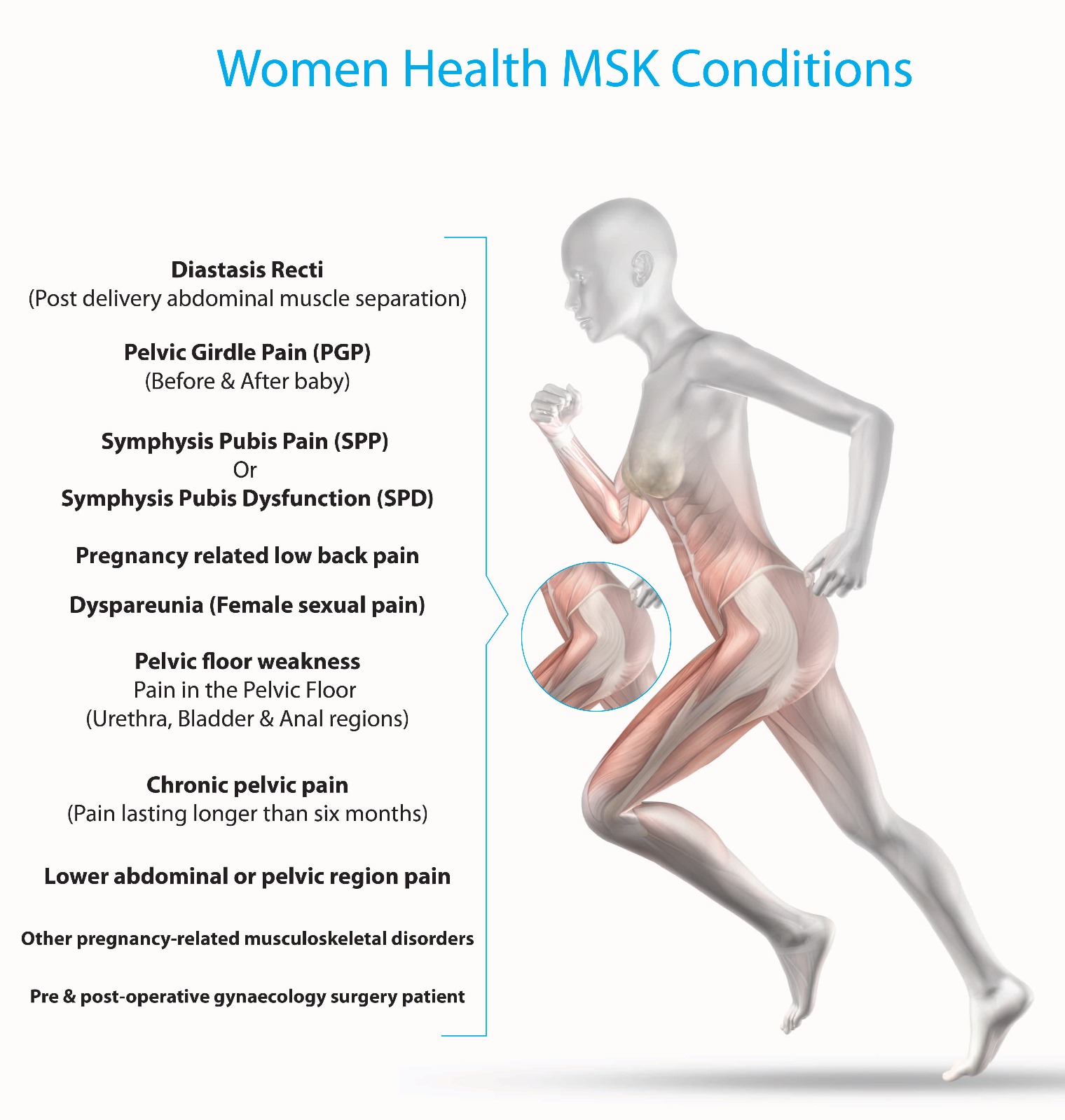Physiotherapy plays a vital role in the treatment of women’s health musculoskeletal conditions by addressing pain, improving mobility, restoring strength, and promoting overall well-being. Treatment is tailored to the unique physiological needs of women, considering factors such as hormonal changes, pregnancy, childbirth, and age-related conditions like menopause. Physiotherapists work to manage and alleviate symptoms while improving functional outcomes, helping women regain strength and quality of life. They often use a combination of manual therapy, exercise, and education to create a holistic treatment plan that addresses both immediate concerns and long-term health.
For pelvic girdle and pelvic floor related conditions, physiotherapists employ specialised exercises to strengthen and relax the pelvic floor muscles, which can improve bladder control, reduce pelvic discomfort, and enhance overall pelvic health. This is particularly important during and after pregnancy, when pelvic floor muscles are often weakened. Physiotherapy also plays a critical role in postpartum recovery, focusing on restoring core strength, addressing issues like diastasis recti (abdominal muscle separation), and supporting pelvic floor recovery. Through targeted interventions, physiotherapy helps women recover from the physical strains of pregnancy and childbirth, ultimately promoting optimal pelvic and abdominal health while improving overall functional movement.




















